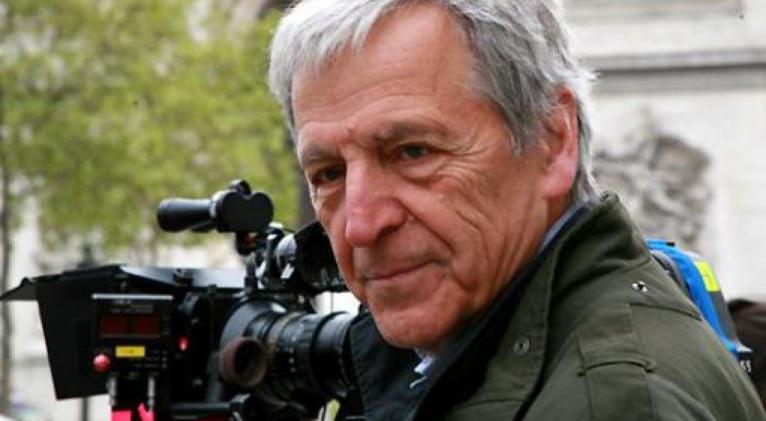Costa Gavras: “There are Principles that I Do not Want to Change”
especiales

As soon as he showed up in the room, he was surrounded by colleagues from Cuba’s Film Library, in an attempt to have at least a separate contact with the acclaimed filmmaker of Z, State of Siege, or Missing, among many other films in which he masterly portrays his social and political concerns.
Thanks to Nouredine Essadi, who founded the festival together with Christophe Barratier, we were able to have a brief meeting with him before the press conference started.
Besieged by our microphones, Costa Gavras agreed to talk with us using his poor Spanish but marked by a sense of humor:
“I always feel pleased and proud of coming to Cuba, which I have visited like four or five times. Every time I come here I like to visit the International Film School, where I have given conferences together with García Márquez”.
Are you familiarized with the New Latin American Cinema?
Yes, of course, I am familiar with it. But I do not know why the number Latin American films currently screened in France is smaller than some years ago, even Cuban films. This is a mistake, I think.
Cuba has produced extraordinary films, and this shows that a small country can have a significant film production. I have always believed –and we are experiencing this in France- that the development of the film industry depends on the governments’ political will.
A national cinema is essential for the image of a country, so it cannot be left in the hands of independent filmmakers only. There must be political will, something that we have had in France for so many years. This is the reason why the (French) film has such a huge production and why it attracts so many people.
Your latest film The Capital will be screened here. Tell us something about it.
(He laughs) It has nothing to do with Marx’s Capital. This is a film dealing with money, which has become a sort of religion in the today’s world.
Men and women do not count, only money. I also think that today the political power is weaker than the financial power, which is evidently necessary for the society but to if it is to help people
How has your vision as a filmmaker changed from the time you made the film Z until The Capital?
“Firstly, the years. You can see this in the photographs,” he replies quickly and mischievously, and went on by saying:
Z is a film that belongs to another historical period in Europe and the world, which has changed so much. However, it has not changed for the better, in some parts it has changed for the worst.
Yes, of course, I have changed because the experiences have changed, the world has changed. I was a father, now I’m a grandpa.
All that has changed a lot, but there are principles that I do not want to change. I do not know if I will be able to remain this way, but I do not want to change some principles of life… ethics.
How about aesthetics?
Ethics and aesthetics are two words that are quite similar.
Had you heard about the French Film Festival?
This is the first time I’ve come to the festival, but I’ve known Christophe Barratier since he was a child and I think it is a good idea that this festival is held every year. It makes me happy to see that so many Cubans can watch French films.
He then joined his colleagues and when addressing the audience he kept on saying in Spanish:
“I’m very happy also because the United States is assuming a different stance toward this country. I’ve always thought that they should allow Cuba develop according to its system, without blockade and without all those things plotted against it. I think things will be different now.”
Translation: Dayamí Interián (Cubarte)













Add new comment